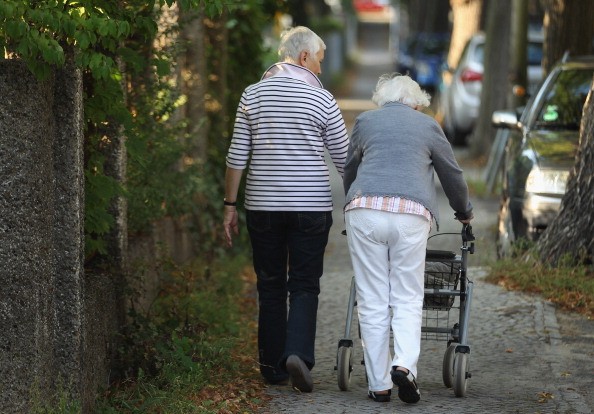
Many elderly or frail people depend on a cane or a walker to help them get around safely. But they need to be trained in their use in order to get the most out of them. Using canes and walkers without proper training can be an invitation to a fall, according to a study.
Researchers in Belgium looked at the use of walking aids as a risk factor for falls by studying 43 older adults who lived in a residential community, half of whom used a cane or walker. Most of the walking aids used were either two- or four-wheeled walkers. Those who used a walking aid had a greater fear of falling, had a more conservative gait, walked slower, took shorter steps, swung their arms less, and were more likely to report having fallen. There were also more likely to be older and to use medications that could alter their mental state.
After accounting for medications, falls in the previous years, older age, walking speed, and other factors, people who used walking aids were still nearly four times as likely to fall as those who did not use one.
"Doctors and therapists should consider an individual's physical and mental abilities and living conditions before prescribing a walking aid," said Tine Roman de Mettelinge of Ghent University in Belgium, one of the authors of the study. Someone who needs a walker or a cane should be given balance and gait exercises and then be trained on how to safely use it, including in ways to avoid falls, she said. Training should also include how to open and close doors while using the walker or cane.
This finding supports the aim of extensive training periods and appropriate instructions on the proper use of walking aids in terms of adequate and safe gait patterns, the study concluded.

